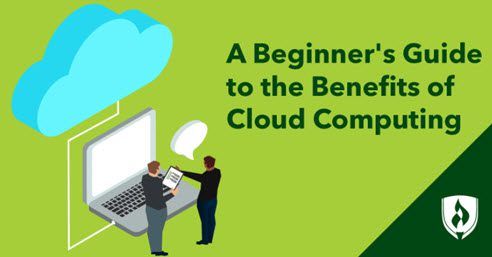August 2021
T o most people, “the cloud” may seem incomprehensible—it sounds like maybe a magical bank in the sky for data. While that image is far from the truth, the cloud certainly does offer some—if not magical, at least remarkable—benefits.
o most people, “the cloud” may seem incomprehensible—it sounds like maybe a magical bank in the sky for data. While that image is far from the truth, the cloud certainly does offer some—if not magical, at least remarkable—benefits.
“The cloud. We’ve all heard the term thrown about in recent years,” says Roy Whelan, solutions director of SmartOffice. Whelan explains cloud computing means storing data on remotely accessible servers hosted on the internet. “This means businesses can manage data in a shared space and can access data from any location, not just from a local server.”
Before cloud computing, companies needed to invest in on-site servers to store their data, Whelan explains. This could get expensive with the physical requirements of the servers as they need space, physical hardware, software and maintenance, as well as an in-house IT team you’d need to manage them.
Cloud computing offers companies the chance to utilize virtual storage space on the internet. But the benefits keep building from there. If you are interested in cloud computing, read on! We asked business leaders and professionals in technology to share some of the benefits of cloud computing
7 Potential Benefits of cloud computing you should know about
1. Cost
“For me, one of the biggest reasons to switch to the cloud is cost,” says Greg Dickens, founder of Epilocal. “With the cloud, you are only paying for server time you use, rather than having to invest lots of money up-front to run your own servers, so there’s a big cash-flow benefit there,” Dickens emphasizes that, for smaller companies and start-ups, removing that initial barrier of in-house servers can make a huge difference in their ability to compete.
A growing cloud trend, serverless architecture can further compound the savings in cloud computing, according to Dickens. “Serverless architecture deconstructs cloud servers to their absolute minimum: individual functions. So now, rather than having to rent cloud servers for the time you use them, you can rent individual functions instead.”
2. Scalability
Cloud computing is cost-effective and efficient for big businesses and small businesses alike because it allows you to pay for what you use. “Cloud computing plans allow businesses to scale their data usage and computing power up or down depending on their needs and budget,” says Sebastian Schaeffer, CTO and owner of dofollow.io. Using what you need and adjusting as you go is more flexible than investing in hardware, Schaeffer points out, and many companies desire that flexibility.
For example, think of the start-up example above. If cloud computing didn’t exist, they’d have a much tougher time determining how much should be invested in infrastructure—do you tie up resources in overshooting your current needs in anticipation of growth? Incrementally add on as needed while potentially disrupting operations? Cloud computing makes these questions much easier to navigate.
3. Accessibility
Think of the sharing and collaborating capacities of platforms like Google Drive™, Dropbox® or Microsoft Teams®, and you’ll have an idea of how much the accessibility of cloud computing has revolutionized work. Cloud-based technology allows people to collaborate on the same items from anywhere, updating in real time.
“This increases productivity and efficiency due to the reduction of phone calls and unnecessary trips to gather information,” says Jeff Roscher, CEO of eWorkOrders. He points out that streamlining these processes makes work easier and faster, increasing productivity and potential profits.